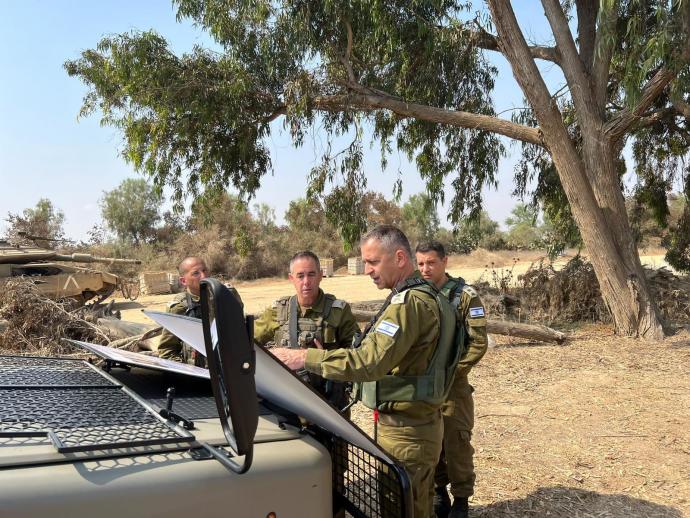Following the arrest of the senior Islamic Jihad in the West Bank, the security situation in the South continues to be tense for the third day.
“It is true that a leader was arrested, but half the country is paralyzed,” said Shlomi Elkayam, owner of a toy store in Sderot, describing the feeling of the city to Nissim Mashal and Guy Peleg on 103FM on Thursday. “Would you close Tel Aviv like this, too? Desolate and empty - the streets have a feeling of Yom Kippur. There aren’t many cars on the road, there is no pedestrian traffic. According to the instructions, you can go out, but [because of] the fear that has spread in people, the roadblocks [and] the traffic jams that have formed, there is a feeling of fear of leaving the house. There are also many closed towns that require a military escort to leave.”
"It is very easy to shut us down. We don't work for three days. Could this have happened in Tel Aviv? Because of fear? Because a criminal wants to take revenge on someone, do you close streets in Tel Aviv? That's what we feel here - it's very easy to shut us down."
Shlomi Elkayam
Asked if there is a greater feeling of security, he replied, “it is true that the threat of balloons has decreased significantly in the past year – you can say it has disappeared. The incidents at the fence decreased long before. I am more surprised by the fact that one warning or another can close down half of the country – for nothing.”

From an economic point of view, the situation in the South caused a sharp decline in the income of Elkayam’s store.
“I have a 75% drop in income these days,” he said. “These are very critical days. In August, kids finish school, so these are days that should be busy – it’s like a carnival for us. These children will now go to Beersheba because it’s safer there, to Ashkelon because it’s safer.
“No one wants anyone to get hurt – we’re not looking for that – but are we going to arrest someone? They [the government] should know the importance [of what they are doing] and the consequences. Prepare an outline, tell us ‘be closed for three days or a week, we’ll give you compensation,’ but nothing. They don’t say when it will end – and we are the ones who will need to deal with it.
“I continue to pay rent – our financial damage is much more severe than my daughter not being able to go to summer camp. I don’t know how to explain to my bank manager that during this time I usually pull in NIS 30,000 every day, but I hardly make anything now. I pay huge rent, employees, electricity – this is hard for us. If there was some sort of preparation beforehand, outlining what reparations we could get, we could deal with it.”
Elkayam himself posed a question to the state: “It is very easy to shut us down; we don’t work for three days. Could this have happened in Tel Aviv? Because of fear? Because a criminal wants to take revenge on someone, do you close streets in Tel Aviv? That’s what we feel here: it’s very easy to shut us down.”
